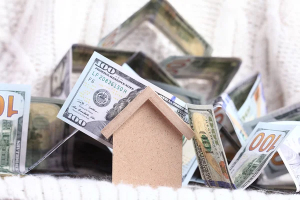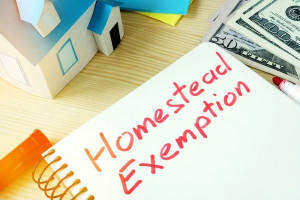
In Florida, the homestead exemption provides certain protections for your primary residence in bankruptcy proceedings. Under the Florida Constitution, if your homestead property meets certain criteria, it can be exempt from the claims of most creditors, including during bankruptcy.

The property must be your primary residence, and it must not exceed half an acre within a municipality or 160 acres outside a municipality. In Florida, if your homestead property is located within a municipality (city or town) and exceeds the half-acre limitation, the exemption is limited to one-half acre. In other words, only the first half-acre of the property is exempt, and the remaining portion may be subject to the claims of creditors in bankruptcy.
You must have legal ownership or equitable title to the property. This typically means that you must be on the deed or have a legal interest in the property. However, if you file for bankruptcy and your non-filing spouse owns the homestead, then the homestead exemption will be imputed to you whether you want it or not. This is important because debtors in bankruptcy who do not claim the homestead exemption are entitled to an additional $4,000 in what's called a "wildcard" exemption. Wildcard exemptions can be applied to whatever property the debtor would otherwise be forced to surrender in Ch. 7 bankruptcy.
You must use the property as your permanent residence or intend to do so. This means that on the day you file your bankruptcy petition, it is your desire and intent to indefinitely live on the property as your primary home.
To claim the full, unlimited homestead exemption in Florida, you must have acquired title to your home at least 1,215 days prior to filing for bankruptcy. If you file for bankruptcy before 1,215 days have passed since you acquired the property, the maximum exemption amount for your homestead is $170,350 (as of April 1, 2022). This limit is subject to adjustment every three years based on the Consumer Price Index. It's important to note that this limit applies to the equity in your home, not the total value of the property.
As of September 2021, the Florida homestead exemption provides an unlimited exemption for the value of your homestead property if it meets the four criteria mentioned above. This means that creditors generally cannot force the sale of your primary residence to satisfy debts, including during bankruptcy.
It's important to note that bankruptcy laws and exemptions can be subject to change, and it's crucial to consult with a qualified Florida bankruptcy attorney for the most up-to-date and accurate information based on your specific circumstances and the current laws applicable in Florida. They will be able to give personalized advice and guidance regarding your homestead property and its exemption status in bankruptcy.

Take action now to secure your home and financial stability. Contact Fleysher Law today for a personalized consultation. Our knowledgeable bankruptcy attorneys will assess your specific circumstances and provide you with the most up-to-date and accurate information regarding your homestead property's exemption status in bankruptcy.
During your consultation, we will:
Don't leave your future to chance. Let our experts guide you through the complex legal processes, ensuring you keep your home's equity protected. Schedule your consultation now and gain the peace of mind you deserve. Take the first step towards financial peace of mind by reaching out to us today.

"*" indicates required fields